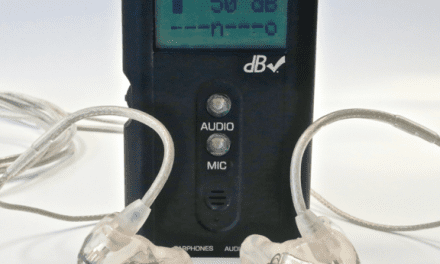Neuroscience company Cognivue, Victor, NY, recently conducted a virtual national symposium to better define and establish a cognitive healthcare continuum that serves a diverse and growing at-risk population. “Connecting the Dots: Building Partnerships to Improve Cognitive Health” attracted some of the most respected voices in medicine and science, coming together to address what they deem an urgent need for transformation in healthcare, according to the company.
“Accessibility and adoption of cognitive health assessment are imperatives for true change to occur in healhcare settings and elevate the current standard of care, empower action, and reduce the stigma of cognitive health,” said Cognivue Chief Medical Officer and Senior VP Dr Fred Ma, MD, PhD. “This symposium of leaders from various healthcare settings and academic institutions is a critical step to achieve broad awareness and advance the state of cognitive assessment.”
Presentations included:
- “Cognitive Assessment in Neurorestoration” by Charles Liu, MD, PhD, director of the USC Neurorestoration Center
- “Geriatric Innovation & Cognition”, by Ardeshir Hashmi, MD, section chief of Geriatric Innovation & section chief of Cleveland Clinic’s Center for Geriatric Medicine
- “Cognitive Health in Sports”, by Jeffrey Kutcher, MD, global director of the Kutcher Clinic for Sports Neurology, United States Ski and Snowboard Team neurologist and director of the National Basketball Association Concussion Program
- “Sleep Related to Cognition”, by John Adrefsky, MD, medical director of neurology at University Hospitals Parma Medical Center & medical director of UH Parma’s Sleep Center
- “The Role of Cognitive Health Assessments in the Primary Care Setting”, by Diego Cahn-Hidalgo, MD, Brighton Internal Medicine
- “How Eyesight Interlinks with Cognition”, by Mike Pier, OD and Brad Oatney, OD
- “Functional Hearing” by Heidi Hill, AuD, director of the Hearing Health Clinic Auditory Rehabilitation Specialists
- “Cognition and the Audiologist”, by Al Turri, AuD, director of audiology for The Villages Health System
- “The Impact of Music on Hearing Cognition”, by Jill Davis, AuD, clinical director for Victory Hearing and Balance Center
According to Cognivue, attendees agreed there is an urgent “mind shift” required about how, when, and where to implement cognitive function testing (eg, conducted outside of a primary care or neurology medical office setting).
Cognitive health is related to a person’s every activity and action, noted the group. As such, cognitive function testing should be more easily accessible and become a standard of care at a much earlier time in a person’s life, while there is still time to possibly mitigate symptoms of impairment prior to more serious disease onset. They also agreed that testing stigma must be removed, and the concept of testing in more “non-traditional” settings, such as pharmacy, optometry, and audiology offices, should be embraced.
Related article: Issues in Cognition, Audiology, and Amplification, by Douglas Beck, AuD, and Michael Harvey, PhD, ABPP
“The shift in thinking must be fundamental: to view cognition as a vital sign and key part of a patient’s health, just as cardiological, pulmonary, and endocrinological functions are today,” said Dr Diego Cahn-Hidalgo. In addition, the healthcare industry will need to understand how cognitive assessment can ultimately help patients and save money.”
According to Cognivue, the company’s first FDA-cleared computerized test of cognitive function is designed to give healthcare providers a useful tool for cognitive evaluation and diagnosis of various neurodegenerative and neuropsychological disorders. The digital system is engineered to eliminate bias and variability throughout the test that establish cognitive baselines and provide a concurrent monitoring vehicle for the evaluation and treatment of cognitive issues over time.
“As we evolve in our thinking about testing cognitive function earlier and as a standard of care, Cognivue’s technology will be a preferred option based on its superior test-retest reliability, objectivity, sophistication and ease of implementation into any healthcare setting,” said Dr Ma. “We will be conducting a follow-up symposium later this year to continue shifting cognitive health from fear and trepidation to empowerment and excitement about what the future holds. My peers and I are eager to share with healthcare leaders and patients how Cognivue will elevate the gold standard of cognitive assessment, reduce the stigma of cognitive issues and empower action with early detection.”
Source: Cognivue






